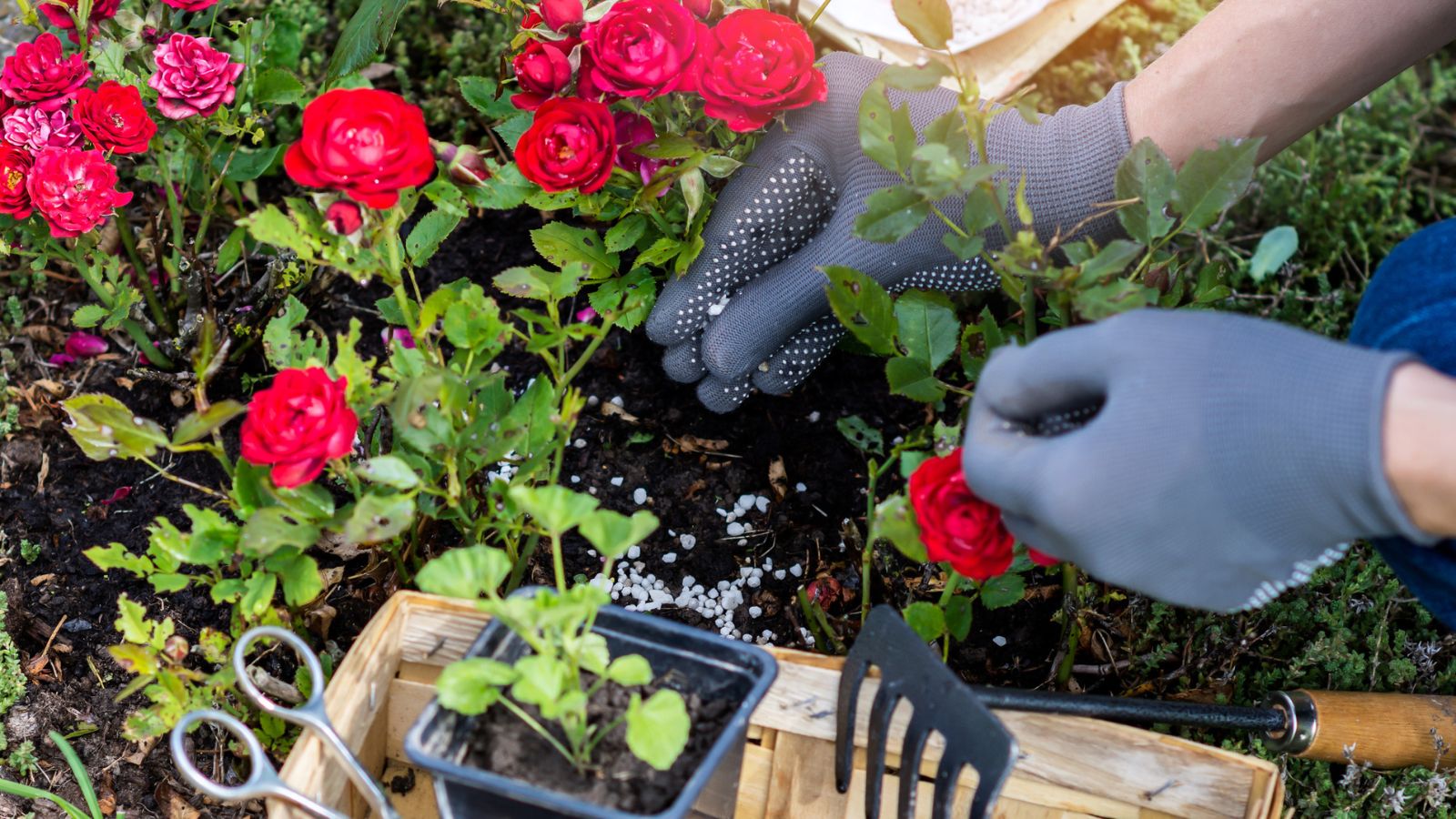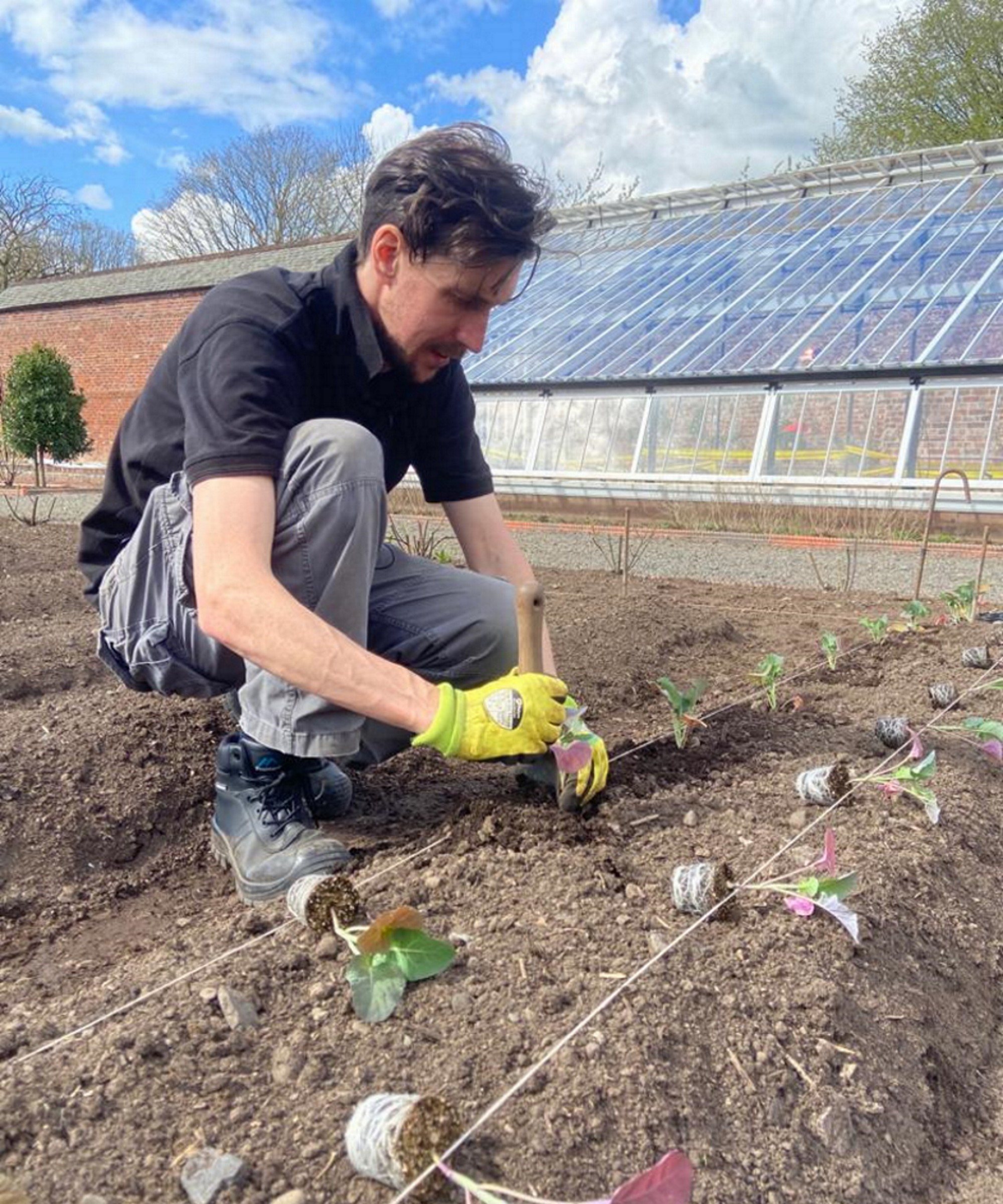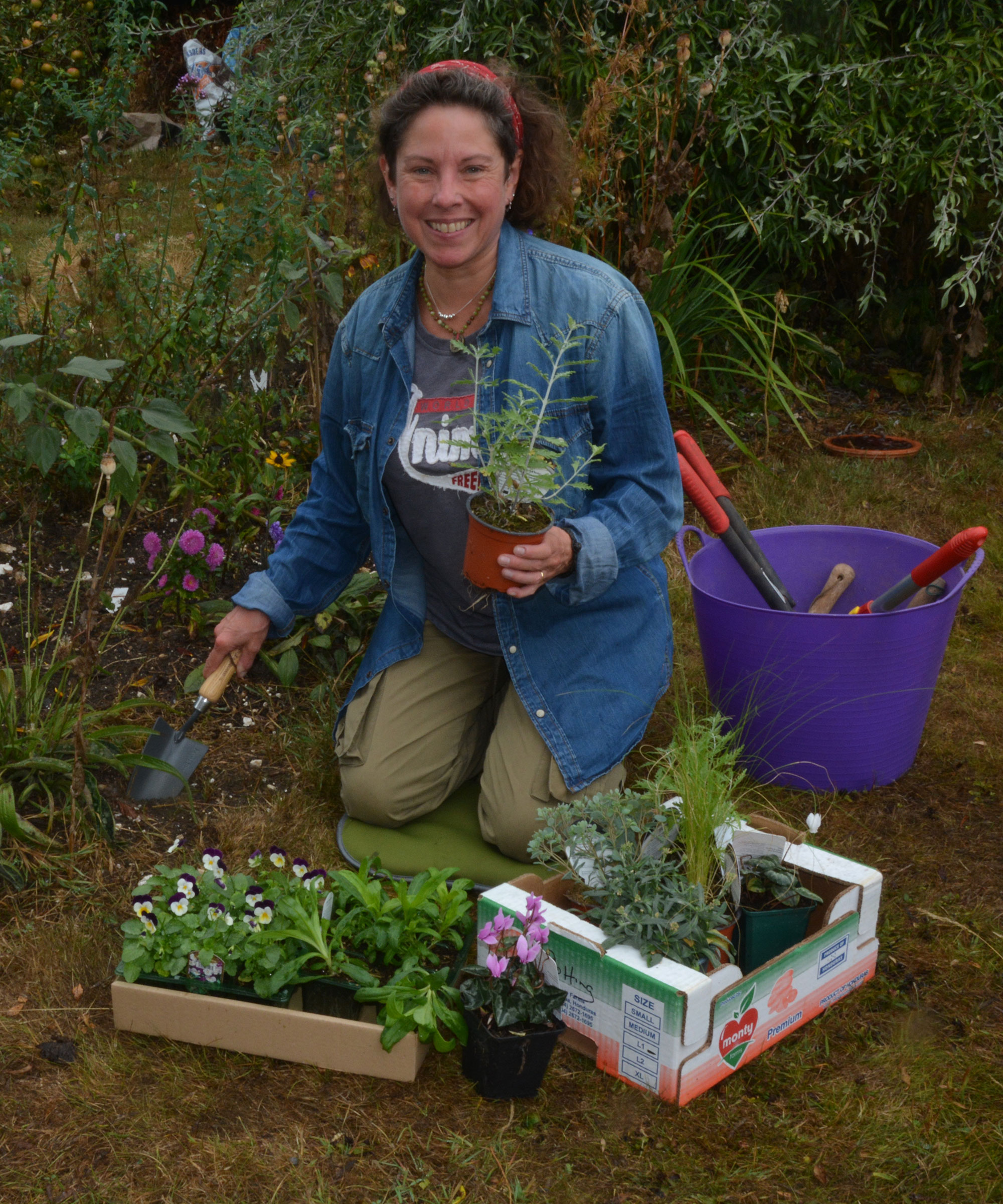When to fertilize roses – our experts tell you how to get bigger, beautiful blooms
Get the timing right and enjoy healthy growth and a better show


Design expertise in your inbox – from inspiring decorating ideas and beautiful celebrity homes to practical gardening advice and shopping round-ups.
You are now subscribed
Your newsletter sign-up was successful
Want to add more newsletters?

Twice a week
Homes&Gardens
The ultimate interior design resource from the world's leading experts - discover inspiring decorating ideas, color scheming know-how, garden inspiration and shopping expertise.

Once a week
In The Loop from Next In Design
Members of the Next in Design Circle will receive In the Loop, our weekly email filled with trade news, names to know and spotlight moments. Together we’re building a brighter design future.

Twice a week
Cucina
Whether you’re passionate about hosting exquisite dinners, experimenting with culinary trends, or perfecting your kitchen's design with timeless elegance and innovative functionality, this newsletter is here to inspire
If you know exactly when to fertilize roses and get the job done at the right time, you will certainly reap the rewards: a show of bigger, better blooms, and healthier plants in the long run.
As a very general rule, roses should be fed in spring and late summer, but zone-by-zone and rose type by rose type, there will be subtler variations. 'Roses generally are quite hungry plants and appreciate feeding annually with a top-dressing of balanced slow-release fertilizer applied in spring and again in mid-late summer,' says H&G's gardening expert John Negus.
Luckily, your roses will help you narrow this timeframe down by giving you signs that they're ready for a feed. And, our gardening experts have all the specialized information you need, below.
This is when to fertilize so that your rose garden ideas reach their potential.
When to fertilize roses
Whether you are planting roses now or looking to boost the health of existing plants, this guide breaks down when you should feed roses, by season, type, and the signs to look out for that roses are hungry, or over-fed.
First things first? Ensure conditions are right so that your roses take up as much of the fertilizer as possible: 'It is always best to apply fertilizer (granular or liquid) to moist soil so you do need to ensure plants receive plenty of water in order for them to be able to make the most of the additional nutrients,' advises John Negus.
When to fertilize roses in spring
As soon as the weather begins to warm, you will notice new growth starting to appear on established roses. This is the sign that roses are ready to be fed.
Design expertise in your inbox – from inspiring decorating ideas and beautiful celebrity homes to practical gardening advice and shopping round-ups.
'The right time for roses to be fed is just when their first leaves are starting to fully open,' advises our gardens writer Drew Swainston. Gardening editor Ruth Hayes agrees: 'A rose fertilizer can be applied just as these greedy plants start to grow again,' she says.
When to fertilize roses in summer
Roses will need another feed in mid to late summer, too, to promote root growth and ensure an even better show of blooms next year.
'Reapply fertilizer in mid summer to give them a secondary boost,' says Ruth Hayes. 'After pruning roses, feed with a granular rose fertilizer and carefully fork it in, taking care not to hit the roots. Then water well and overlay with a generous layer of mulch.'
You can find out when to prune roses in our separate guide, but in general, the answer to that question is mid to late summer, obviously.
How often to fertilize in the growing season
Sticking to a twice-yearly rose feeding timetable isn't the end of the story; while roses are blooming, they will benefit from being fertilized more often, usually once a month, starting after the first blooms have faded.
When to fertilize new roses
Fertilize new roses as you plant, and thereafter. When to plant roses? In spring once the frosts have passed, or in fall, at least six weeks before the first frosts to give them time to establish. Plant them into plenty of organic matter, such as well-rotted compost.
These new roses will then need feeding once a month, but only with a phosphorus feed, which will encourage root growth.
Once a new rose has flowered, you can begin to introduce other types of rose fertilizer.
When to fertilize container roses
You will need to be more rigorous about when you feed roses growing in pots.
'Roses in containers particularly will benefit from a monthly liquid feeding with a balanced fertilizer,' says Drew Swainston.
This is because container plants tend to need watering more often, and each time you water them, the soil's nutrients, and any fertilizer you have added, will be washed out of the container.
When to fertilize roses more often
Your roses will send out distress signals if they are being under- or over-fed. You may have asked yourself why your rose's leaves are turning yellow, and this is one of the signs, as are smaller-than-expected blooms and poor growth overall.
As well as keeping your eyes open for these signs, give them more attention in prolonged dry spells, ensuring they have been watered thoroughly before feeding.
When to stop fertilizing roses
After the late summer feed, stop fertilizing roses; this is because you don't want to encourage new growth that will be damaged by early frosts.
Which rose fertilizer to use?
Whether you choose an organic fertilizer, such as well-rotted manure, which is sustainable, sometimes free, but requires a fair amount of labor, or buy a more convenient-to-apply rose fertilizer from a plant nursery or online, this is what to look for.
Established roses will enjoy a fertilizer that's high in nitrogen in spring, followed by a milder, slow-release fertilizer once the new growth is at around 5in.
'It is best to feed roses with a general fertilizer that has a high amount of phosphorus, the nutrient that encourages a wealth of beautiful blooms,' says Drew Swainston.
We have had great results with Miracle-Gro's Rose Plant Food, which is available online via Walmart for established roses, and with Rock Phosphate (from Amazon) for new plants.
Our rose expert panel

Drew qualified as a journalist before studying for a Horticulture qualification. This opened up the chance to work as a professional gardener for several years. During his gardening career he also specialized as a Kitchen Gardener, growing edibles for the restaurants, deli and cookery school at Soho Farmhouse in the UK, and for chefs at a prestigious restaurant. Drew is passionate about walled gardens, growing edibles, and producing cut flowers. He has run a blog called Perennial Nerd for many years, talking about his life working in and managing walled gardens, fantastic gardens he has visited, his allotment, and projects at home. He's now bringing his expertise and passion to Homes & Gardens as a member of our team.

John has been a garden journalist for over 50 years and regularly answers readers' questions in Amateur Gardening magazine. He has also written four books and has delivered many talks over the years on horticulture.

Ruth is horticulturally trained and has qualifications from the Royal Horticultural Society. She spends her days writing about and photographing key gardening jobs, and always enjoys sowing a wide range of flower seeds in her own garden.
FAQs
How many times a year should I feed my roses?
Fertilize your roses a minimum of twice a year: once in spring, and once again in mid to late summer. In between, look to feed roses every month to ensure healthy growth.
Should I mulch when I fertilize my roses?
Yes, it is really good practice to mulch roses when fertilizing. 'Roses will benefit from mulching with well-rotted organic matter such as manure or garden compost, which helps to retain moisture in the soil around the roots and makes further nutrients available. This should be applied after pruning and feeding in late winter,' advises John Negus.
How do I know if I am over-feeding my roses?
Signs you are giving your roses too much fertilizer are a disappointing show of blooms and bushy foliage.
Getting the timing right when fertilizing roses is key to promoting healthy root growth, which, in turn, can guarantee an impressive show of blooms, year after year. Always read the plant label when you buy a new rose for specific advice on feeding and timings.

Lucy Searle has written about interiors, property and gardens since 1990, working her way around the interiors departments of women's magazines before switching to interiors-only titles in the mid-nineties. She was Associate Editor on Ideal Home, and Launch Editor of 4Homes magazine, before moving into digital in 2007, launching Channel 4's flagship website, Channel4.com/4homes. In 2018, Lucy took on the role of Global Editor in Chief for Realhomes.com, taking the site from a small magazine add-on to a global success. She was asked to repeat that success at Homes & Gardens, where she has also taken on the editorship of the magazine.